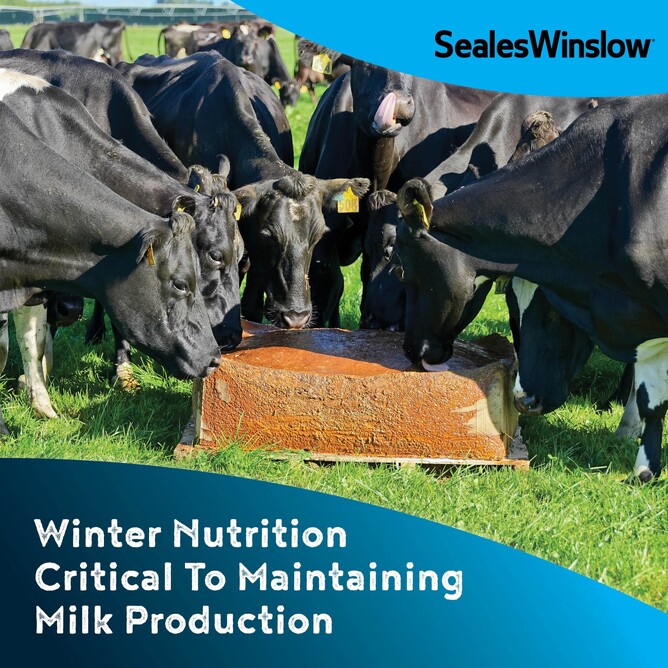Dairy farmers have had a great season, but they shouldn’t take their foot off the gas coming into winter when the right nutrition and minerals are critical to maintaining production, says a ruminant nutrition expert.
“Grass growth has been good this season so there is plenty of feed in certain regions. So, it can be tempting to think about easing off and not focusing as heavily on nutrition,” says Paul Drew, SealesWinslow Technical and Quality Manager.
“By continuing to do the basics well and managing nutrients and minerals farmers can end the season on a high and set up their herds well for next season.”
Mineral supplementation is key in preventing issues from metabolic disorders like milk fever to ensuring optimal growth and productivity. Magnesium and phosphorus are two key minerals that can be deficient in herds during the winter.
Farmers have a range of options for getting essential minerals into their cows. Paul says molasses-based lick blocks provide excellent nutritional support for cattle and are an easy solution for farmers. They contain magnesium and phosphorus along with other essential elements including, calcium, sodium, cobalt, copper, iodine, selenium, and zinc.
“Molasses-based lick blocks are a good choice to make sure your herd is getting all the minerals they need. They not only supply essential minerals but also aid in rumen digestion, contributing to overall animal health and productivity,” says Paul.
Magnesium plays a key role in preventing milk fever but its uptake into the cow’s system can be hindered.
“Simply making magnesium available is not enough as its uptake can be hindered by agents like potassium and nitrogen, which stop it being absorbed properly by the rumen,” says Paul.
“For example, cows grazing in effluent paddocks or where nitrogen has been freshly applied will likely have a significantly decreased uptake of magnesium.
“If a cow isn’t getting enough metabolisable energy, this will also affect her ability to uptake magnesium. This really underlines why we need to provide a daily magnesium supplement, as magnesium does not store well in the body.”
For cows overwintered on fodder beet, even with a good crop, they can suffer a phosphorus deficiency that can lead to down but alert cows (creeper cows), lameness, poor production, and fertility.
“Fodder beet is a high-yielding crop and highly palatable to stock, but it is low in protein and low in phosphorus, so farmers need to mitigate that by supplementing with phosphorus,” says Paul.
“While farmers can dust crops with calcium and phosphates, a lick-block is a very simple solution.
“There is a lot happening for dairy herds over winter in the lead up to calving and post calving. Getting mineral supplementation right can help protect cows’ health and well-being, make sure they calve down well and re-enter the milking herd in good condition.”
